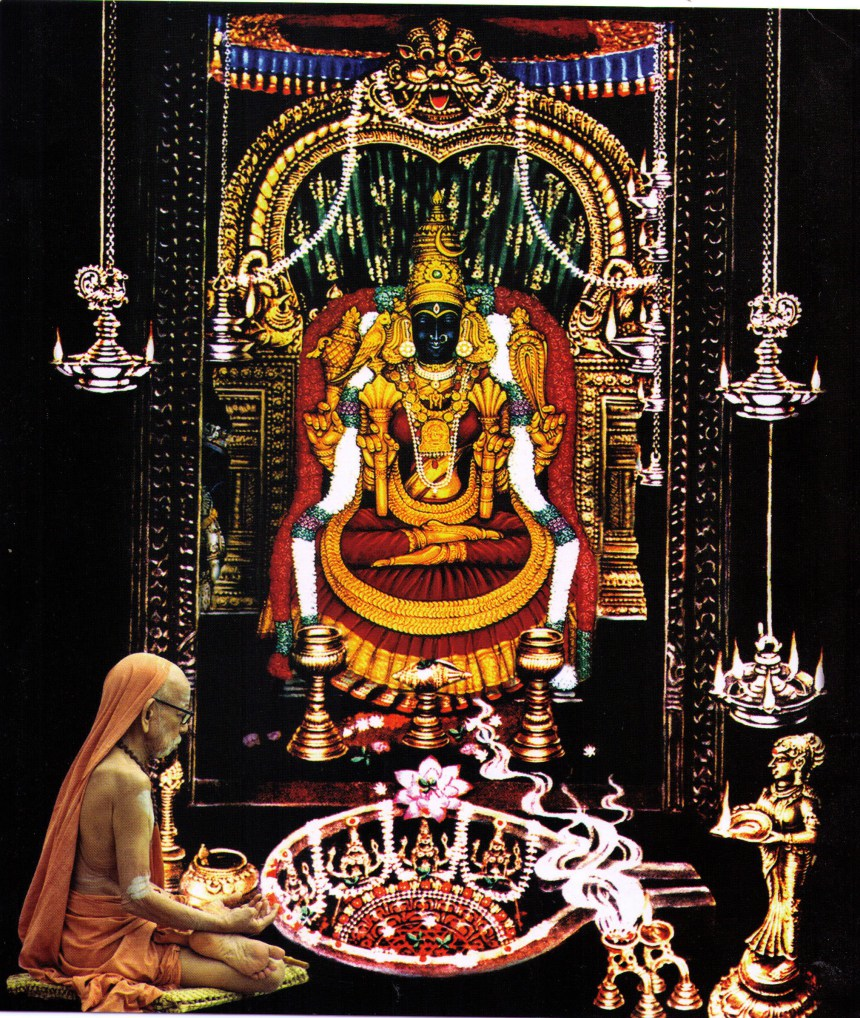There are a number of simple rites the performance of which will free you from inner impurities. From generation to generation our forefathers performed them and earned happiness and contentment. We must follow in their footsteps. We do not have to go in search of any new way of life, any new doctrine or belief.
We can learn from the great men of our past who have left us lessons not only in Atmic matters but in the conduct of family and social life. For instance, kinship and friendship in their time were based on high principles. When there was a marriage or obsequial ceremony all friends and relatives came forward to help. It was cultured behaviour at its best and it was not based on any empty outward show. People then were truly and sincerely interested in helping the needy and the poor. At weddings they gave a little cash to the bride's parents, five or ten rupees, and the burden of those who conducted the marriage was lightened.
When everybody pays a little to the needy. The donor does not feel the pinch but the donee has a tidy sum with which to celebrate a marriage or perform an obsequial ceremony. Among relatives in the past there was not much gap between the rich and the poor. And the rich man helped his poor relatives. All this is part of dharma. The man who helps purifies himself more than the man who is helped.
Now things have changed. The well-to-do do not help their poor relatives. Annadana(gift of food) was part of the noble tradition of the past. How is it today? At present too the well-to-do feed people, but with this difference that those fed are also well-to-do like them. When they give parties, banquets, etc, a great deal of money and material is spent in this manner. Where is the room for dharma or mental purity in all this? A party is given not with any noble intention but to promote one's selfish interests. The man who gives it thinks that he is practicing deception on the invitees. But the invitees, however, knew that the host has no true feelings of affection for them. The host and the guest thus deceive one another. Altogether parties and toasts are nothing but part of modern art of deception and have nothing to do with the cleansing of mind.
If you help a poor man with food or material, you and he are equally happy: there is affection on both sides. In parties, on the contrary, there is even ill-will. Hatred and resentment are caused in the hearts of have-nots by the parties given by the haves[for the haves]. Among relatives there should be no distinction between the rich and the poor.
You must not think that only the affluent can help the poor and earn merit. If you are not well off you may serve others by helping them physically. All of you in a locality may join together to dig a pond. All this contributes to inner purity. How do you deserve the grace of Isvara? By constantly serving others, by being compassionate to all creatures. Your mind, your consciousness, will also become clear. In this pure consciousness of yours, in this pure citta, you will see the image of the Lord. Do you see any image in turbid water? We have made our minds muddy with impurities. We must make them limpid by being devoted to the Lord and by serving mankind. Then Isvara will be within our grasp.

